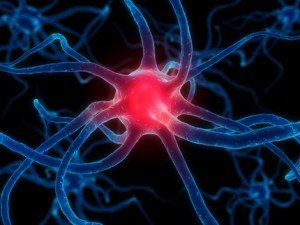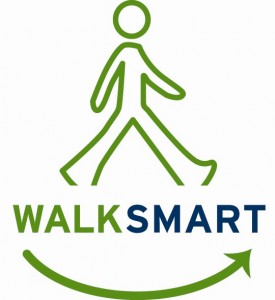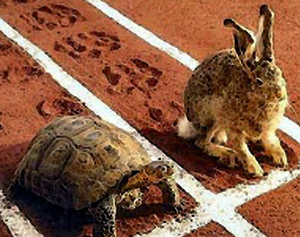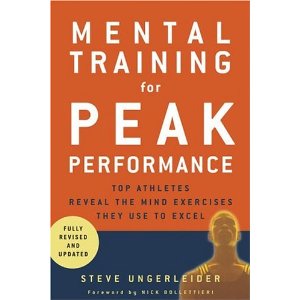I often hear from students, readers and clients that they don’t have time to think. Bombarded with requests, overloaded with tasks and trying to adapt to a dynamic and stressful environment leaves no time for deep thinking. When trying to work on bigger tasks that require significant thought they do so for a short time before they get interrupted, start to worry about something else or just slip into brain fog.
Simple rituals are one of the best ways to increase the duration of your mental focus and concentration. The key is to keep it simple and practice it regularly.
 An example is the Pomodoro Technique. To make it work you:
An example is the Pomodoro Technique. To make it work you:
1. Select a task to work on
2. Set a timer for 25 minutes
3. Work on just that task until the timer goes off
4. Rest for 5 minutes
Afterwards you can either stop, go back to step 1 and pick a new task or continue to cycle through the steps on the first task until the work is done.
Pomodoro is Italian for tomato. The person that developed the technique, Francesco Cirillo, is Italian and used a kitchen timer that looked like a tomato. This may seem too simple to work but it does. The timer is critical as it creates the conditions that allow us to escape into the task at hand.
For more information on the Pomodoro technique check out the video on the Lifehacker blog. You can get a free e-book and purchase supporting materials directly from Francesco Cirillo and the Pomodoro team.
Of course there are many other simple rituals that achieve the same thing. Interested to hear from readers about the techniques they use to make time for deep thinking.
Categories:
Mental Focus, Training Tags:
 On the Next Brain blog we explore specific techniques for improving brain function and cognitive performance. The best techniques are easy or pleasurable, have a significant impact and are backed by scientific evidence. Take for example, the new study on how video games impact the brain’s ability to process probabilistic information conducted at the University of Rochester.
On the Next Brain blog we explore specific techniques for improving brain function and cognitive performance. The best techniques are easy or pleasurable, have a significant impact and are backed by scientific evidence. Take for example, the new study on how video games impact the brain’s ability to process probabilistic information conducted at the University of Rochester.
Researchers found that playing action video games for as little as 50 hours increased decision speed up to 25% with no loss in accuracy.
The tasks involved analyzing a scene (sometimes shown visually other times just described verbally) and deciding what is going on. Subjects were 18-25 years old and do not normally play video games.
Why does this work? According to the researchers:
“Decisions are never black and white,” she said. “The brain is always computing probabilities. As you drive, for instance, you may see a movement on your right, estimate whether you are on a collision course, and based on that probability make a binary decision: brake or don’t brake.”
Action video game players’ brains are more efficient collectors of visual and auditory information, and therefore arrive at the necessary threshold of information they need to make a decision much faster than non gamers, the researchers found.
This suggest using action video games to train your brain should create lasting and transferable effects.
 A colleague shared an interesting New York Times article, Forget What You Know about Good Study Habits. The core idea:
A colleague shared an interesting New York Times article, Forget What You Know about Good Study Habits. The core idea:
“In recent years, cognitive scientists have shown that a few simple techniques can reliably improve what matters most: how much a student learns from studying. The findings can help anyone, from a fourth grader doing long division to a retiree taking on a new language. But they directly contradict much of the common wisdom about good study habits, and they have not caught on.”
The few simple techniques uncovered by cognitive scientist for improving how we study include:
1. Regularly change or alternate the room or environment you study in.
2. Study or work related but not identical topics or study tasks in one sitting. For example, when learning a language study vocabulary, written translation and speaking all in the same session.
3. Space study sessions out over time rather than cramming. Alternate study with simple physical activities.
4. Prepare and take mock tests yourself before taking actual tests.
Simple yes but not commonly practiced by students or adult learners engaged in systematic study. Yet they are proven to “light up the brain” or improve our learning performance.
Interested to hear from readers about other study techniques they have found effective.
 Organized and professionally managed memory contests are growing in popularity worldwide. For example, the United Kingdom Open Memory Championship was just held in August. Many amazing feats were recorded including a mental athlete that was able to memorize a deck of 52 cards in sequence in 80 seconds.
Organized and professionally managed memory contests are growing in popularity worldwide. For example, the United Kingdom Open Memory Championship was just held in August. Many amazing feats were recorded including a mental athlete that was able to memorize a deck of 52 cards in sequence in 80 seconds.
The World Memory Sports Council captures data on competitions, memory events and records. Events range from memorizing the order of cards to historic dates and linking names and faces.
To qualify as a grand master of memory you must achieve the memorization of:
- 100 numbers in an hour
- 10 decks of cards in an hour (520 cards)
- One deck in two minutes or under
No easy feat. It is interesting to note that grand masters, record holders and winners in the various national memory championship tend to claim the same thing:
It does not take high IQ or other special mental gifts to be a memory champion. Instead it takes discipline and the willingness to train intensively.
This is great new for readers of the Next Brain Blog. It suggests that systematic training can greatly improve brain function and cognitive performance. It also provides a context to test your brain fitness and compete in a national or international memory championship.
Very interested to hear from readers that participate in the mind sport of memory. What techniques do you use to train? Has this training improved your cognitive performance in everyday life?
 WebMD, a respected source of information on health has a short slide show on Brain Foods that Help You Concentrate. While the slides cover topics already found in the Next Brain Blog including – caffeine, chocolate, fish, nuts, berries, avocados, whole grains and selected supplements – it is a great summary.
WebMD, a respected source of information on health has a short slide show on Brain Foods that Help You Concentrate. While the slides cover topics already found in the Next Brain Blog including – caffeine, chocolate, fish, nuts, berries, avocados, whole grains and selected supplements – it is a great summary.
It also talks about how they can work in combination. For example slide 11, Get Ready for a Big Day, states:
“Want to power up your ability to concentrate? Start with a meal of 100% fruit juice, a whole grain bagel with salmon, and a cup of coffee.”
Might not be your favorite combination for the total brain breakfast but there are many other options.
Interested to hear from readers that have customized one or more meal to achieve maximum brain function or cognitive performance. What it your total brain meal?

40 Minute Walks 3 Times Per Week at Your Own Pace Measurably Boost Brain Function.
In response to an early post a reader sent me a link to this article – A gentle Stroll can Boost Intelligence. It reports on a study conducted with 100 sedentary adults (self-confessed couch potatoes) that started to walk regularly at their own pace 3 times a week for six months. To make the study interesting the researchers had part of the group do the walking and others do stretching and toning exercises. Here is what they found:
“The walkers also had increased connectivity in the part of the brain which helps in the performance of complex tasks and they did significantly better on cognitive tests than their toning and stretching peers.”
This means mild aerobic exercise can change the wiring of your brain and improve cognitive performance. The effect was especially pronounced in the older adults in the study.
 New research shows that blueberries, strawberries and acai berries can promote brain health. They appear to work by restoring overactive microglia cells that are responsible for removing biochemicals that would otherwise interfere with brain function.
New research shows that blueberries, strawberries and acai berries can promote brain health. They appear to work by restoring overactive microglia cells that are responsible for removing biochemicals that would otherwise interfere with brain function.
The researchers suggest eating whole fruits to get the maximum effect. Interested to hear from readers that eat berries for brain health. What berries do you eat and why?
 Making small changes to our daily activities can make a big difference over the years. Often called lifestyle tuning, this approach can be applied to build brain health and improve your cognitive performance. We have covered many tunning techniques on the Next Brain Blog.
Making small changes to our daily activities can make a big difference over the years. Often called lifestyle tuning, this approach can be applied to build brain health and improve your cognitive performance. We have covered many tunning techniques on the Next Brain Blog.
Posit Science, a leader in brain training software, offers 14 Brain Training Tips. They range in change magnitude from walking on rough surfaces to eating fish and learning to play a musical instrument. Here are the ones that are easy-to-do lifestyle tuneups:
1. Eat Dark Chocolate
4. Exercise Your Peripheral Vision
7. Turn Down the Television
10. Use Your Other Hand
13. Walk on a Cobblestone Path
Although we don’t have research that proves lifestyle tuneups produce lasting improvements in brain health and cognitive performance, we do have such research for cardiovascular health. For example, taking stairs instead of an escalator or a 10 minute walk does in fact improve heart health. My bet is that analogous lifestyle tuneups for the brain will improve cognitive performance.
Interested to hear about your techniques for taking a slow but steady approach to the changes needed to improve brain function and cognitive performance
 Found an interesting blog post that reviewed five recent scientific studies on protein SIRT1 and its possible connection to improved brain function and cognitive performance. The post includes 10 steps to enhanced brainpower many of which we have covered in the Next Brain blog. In paraphrased form these include:
Found an interesting blog post that reviewed five recent scientific studies on protein SIRT1 and its possible connection to improved brain function and cognitive performance. The post includes 10 steps to enhanced brainpower many of which we have covered in the Next Brain blog. In paraphrased form these include:
- Eat and exercise like a wild ancient human
- Take supplements including fish oil, vitamin D and resveratrol.
- Eat blueberries, drink coffee or tea and limit alcohol
- Be an aggressive and continious learn
- Get plenty of sleep
The conclusion is:
“The research basically says: to enhance your brain, you should adjust your lifestyle, diet, and use of compounds or drugs to increase levels of SIRT1 in the brain. The target: an enhanced mind — as alert as those of our ancestors — that thinks more clearly, stays smart, and learns longer.”
The underlying theme here is that the lifestyle and diet of wild ancient humans is the context in which much of our brain development occurred. This means our brains are naturally optimized to work best under those conditions. As conditions are radically different today, reproducing the ancient ways as describe above is one strategy for enhancing cognitive performance.
Top athletes are not only physically fit but also mentally fit. They use mental training routines just as they use physical training routines. Fortunately, many if not all of their mental training routines can be used to improve brain function or enhance cognitive performance in non-sports related contexts.
 A great resource for exploring these techniques is Steven Ungerleider’s book, Mental Training for Peak Performance. He offers an introduction to mental training and then covers specific techniques including affirmations, self-talk, breathing, mediation, mental snapshots, guided-imagery, visual rehearsal and even dreams. We have covered many of these techniques in the Next Brain blog, but Dr. Ungerleider brings refinements and deeper insights to nearly all of them.
A great resource for exploring these techniques is Steven Ungerleider’s book, Mental Training for Peak Performance. He offers an introduction to mental training and then covers specific techniques including affirmations, self-talk, breathing, mediation, mental snapshots, guided-imagery, visual rehearsal and even dreams. We have covered many of these techniques in the Next Brain blog, but Dr. Ungerleider brings refinements and deeper insights to nearly all of them.
Take for example the use of guided-imagery. This is a technique involves forming vivid mental images and controlling them to practice “in your head” and manage anxiety and performance stress. Ungerleider’s approach stresses understanding how the individual experiences the image – sight, hearing, touch and feel. Other approaches I’ve seen assume we experience images with sight only. He has even developed a Sport Imagery Questionnaire (pgs. 56-57) to help you figure out how you experience images. You assess yourself in four different situations – practicing alone, with others, watching a teammate and competing – and rate how you experience images (1-5) in terms visual (what you saw), auditory (what you heard), kinesthetic (what you felt) and mood (how you felt). You use the results to customize routines for generating and controlling vivid imagery.
I completed the questionnaire and was surprised to find that mood played a key role in how I experience mental imagery. I used this to change my approach to guided-imagery with some good results.
Interested to hear from readers about their experience using the mental training techniques inspired by sports.
 An example is the Pomodoro Technique. To make it work you:
An example is the Pomodoro Technique. To make it work you:








